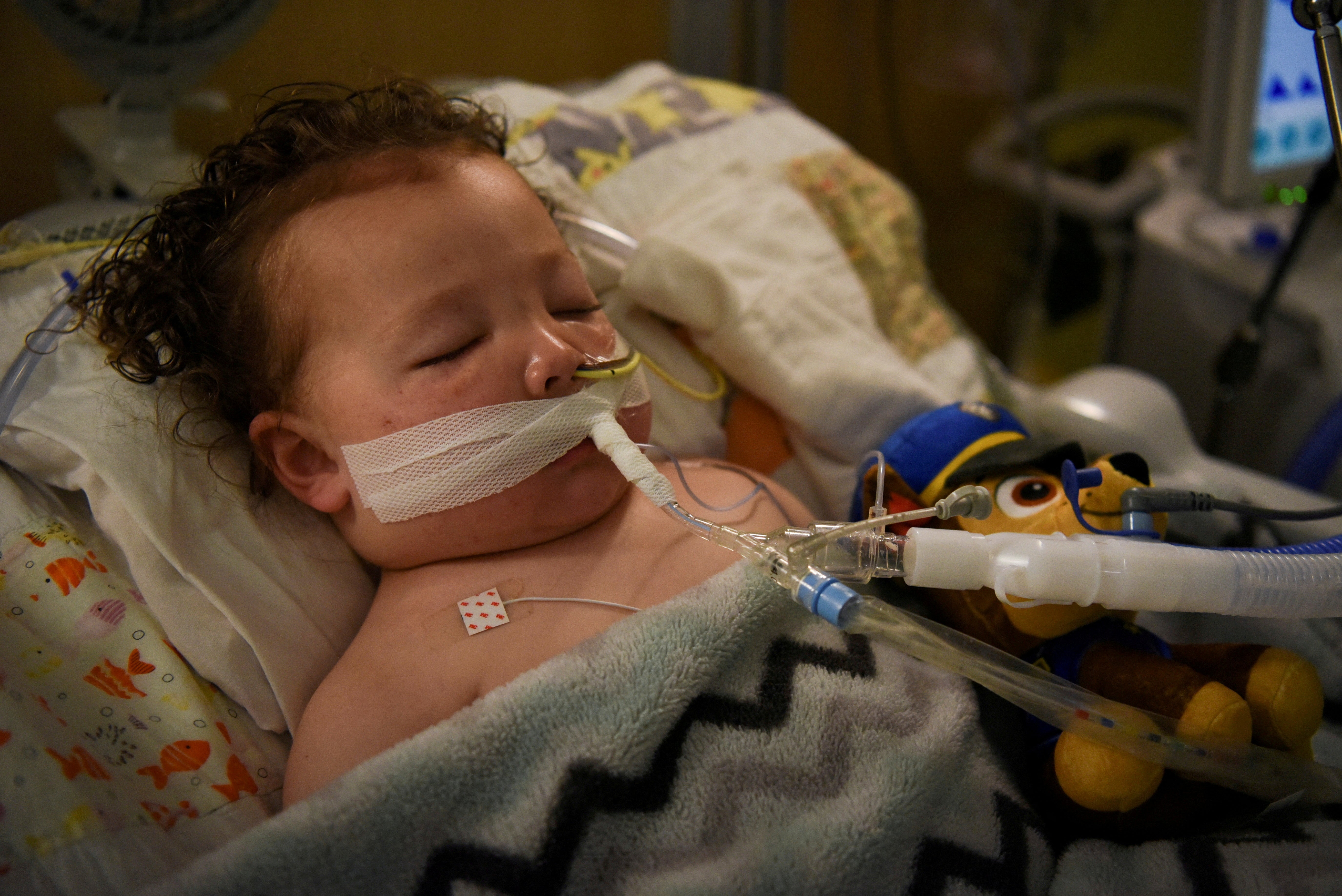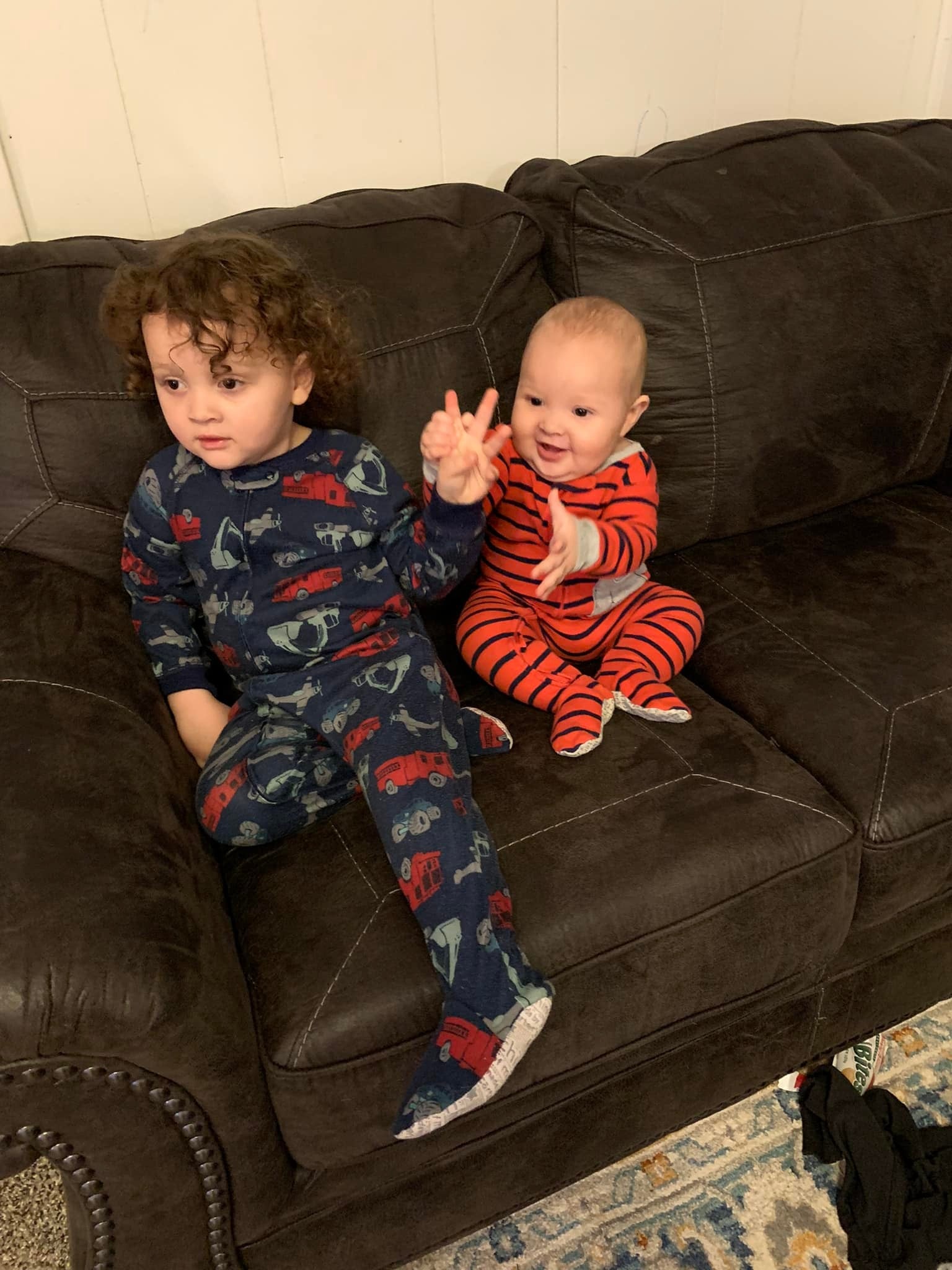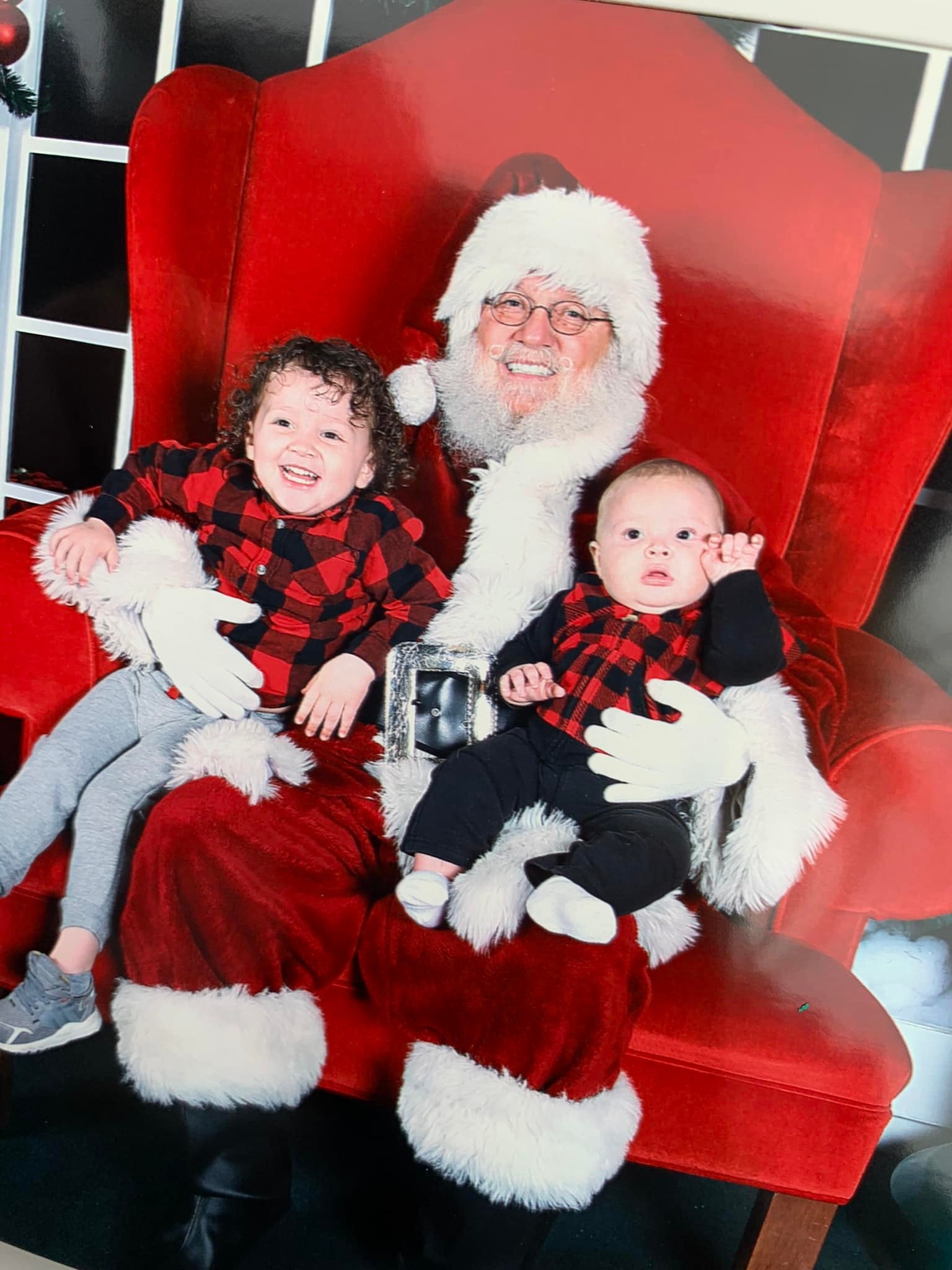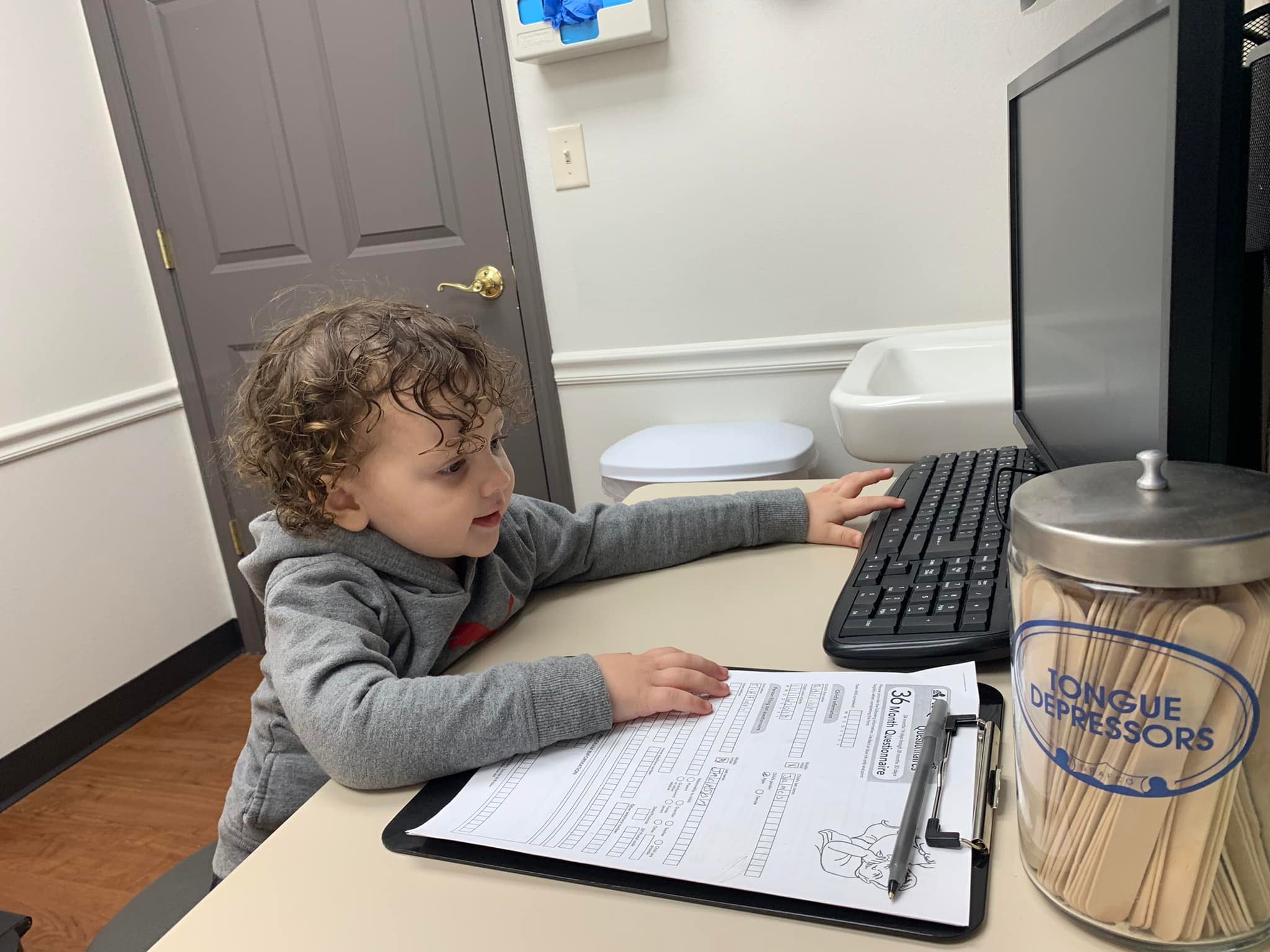The world watched this two-year-old’s Covid struggle – here’s what happened next
‘I just wanted people to realize that it was real and it can really affect your children,’ says Tiffany Jackson, whose two-year-old son was hospitalised with Covid. Nathan Place reports

Your support helps us to tell the story
From reproductive rights to climate change to Big Tech, The Independent is on the ground when the story is developing. Whether it's investigating the financials of Elon Musk's pro-Trump PAC or producing our latest documentary, 'The A Word', which shines a light on the American women fighting for reproductive rights, we know how important it is to parse out the facts from the messaging.
At such a critical moment in US history, we need reporters on the ground. Your donation allows us to keep sending journalists to speak to both sides of the story.
The Independent is trusted by Americans across the entire political spectrum. And unlike many other quality news outlets, we choose not to lock Americans out of our reporting and analysis with paywalls. We believe quality journalism should be available to everyone, paid for by those who can afford it.
Your support makes all the difference.It’s a photo that’s been viewed thousands of times. A two-year-old boy, his eyes closed, lies in a hospital bed with a tangle of tubes protruding from his nose and mouth. One of them is for a ventilator. Underneath it is a Paw Patrol toy.
The boy was Adrian James of Mount Vernon, Illinois, who was critically ill with Covid-19. For parents, the photograph seemed to realise a nightmare that was never supposed to come true – children, supposedly, didn’t get Covid. And yet, here was this seriously ill boy.
Fortunately, today Adrian is out of the hospital and his mother, Tiffany Jackson, says he’s doing great. But in October 2021, she feared his life. So why did she let Reuters photographer Callaghan O’Hare walk into the hospital room and snap that picture?
“Honestly, I was okay with it just because I knew a lot of other parents who weren’t necessarily taking Covid seriously,” Ms Jackson told The Independent. “So I just wanted people to realise that it was real and it can really affect your children.”
At the beginning of the pandemic, the coronavirus seemed to largely spare children. Today that’s no longer the case. According to the CDC, the final week of December saw an average of 521 Americans aged 0-17 hospitalised with Covid per day – almost twice the previous week’s average. This marks an all-time peak in hospitalisations of minors, and as the Omicron variant spreads, that number just keeps rising – on one CDC graph, the recent trend is almost a vertical line.
Deaths are still rare among children – according to the American Academy of Pediatrics, only 0.00-0.02 per cent of US children with Covid have died of it. But the threat of severe illness and hospitalisation is real.
“This idea that children are not vulnerable at all is not so,” Dr Anthony Fauci, the country’s top infectious diseases expert, told ABC News last month. “If your child is five years of age and older, please get them vaccinated. We need to protect the children.”
The Pfizer-BioNTech vaccine is available to children as young as five years old. But when Ms Jackson’s son got sick last fall, he was only two.
On the morning of 1 October, Adrian slept in late. As soon as he was awake, his mother could tell something was wrong.
“When he woke up, he was hot and sweaty,” Ms Jackson recalled. “He really wouldn’t drink anything, he didn’t want to eat.”
Concerned, she tried giving Adrian a bath – but that only seemed to make things worse.
“When he got out of the bath, he just looked miserable,” she remembered. “When I took his temperature, he had a fever of 103. And I noticed he was breathing really fast and really hard.”

Ms Jackson knew she had to get Adrian to a hospital. She asked her boyfriend, Savier James, to come home from work and take care of Adrian’s baby brother, Caius. Meanwhile, she rushed Adrian to Good Samaritan Hospital in Mount Vernon.
“When we were checking in, I already knew something was wrong, because a million people came running from the back up front,” she remembered.
Hospital staff checked Adrian’s oxygen level, and it was at about 80 per cent (a healthy level is 95 or higher). The boy’s heartbeat was also abnormally fast, and he was breathing about 80 times per minute – about twice the normal rate.
Nurses tested Adrian for Covid, the flu, and another respiratory virus. Only the Covid test came back positive. A doctor told Ms Jackson he would have to be airlifted to Cardinal Glennon, a children’s hospital in St Louis.
As Adrian was flown out by helicopter, Ms Jackson and her grandmother drove as fast as they could to meet him at Cardinal Glennon. Once they were there, it wasn’t long before a doctor said Adrian would have to be put on a ventilator.
“I was so scared,” Ms Jackson recalled. “I was crying, I was freaking out.”

Adrian was sedated and intubated. Eventually he was transferred from the emergency room to the pediatric intensive care unit upstairs. There Adrian lay in bed for days as a ventilator did his breathing for him, and his mother stayed by his side, sleeping on a couch.
Later that week, a nurse asked Ms Jackson if she’d be willing to let in some journalists from Reuters. She said yes, and that’s when Ms O’Hare took her famous picture.
The photo made an immediate impact. On Reuters’ Instagram account, the image garnered more than 19,500 likes, as well as countless comments from strangers praying for Adrian’s recovery. As 2021 came to a close, Reuters chose it as one of its “Pictures of the Year”.
Once it was published, Ms Jackson was inundated with mail – cards, gift certificates, DVDs of animated movies, toys of cars, boats, animals – all from strangers in the St Louis area who saw Adrian’s picture and wanted to help.
“He looked so worn out and so sad, but at the same time he looked so precious and so sweet,” Ms Jackson reflected months later.
Eventually, Adrian recovered enough to come off the ventilator. And on October 11, 10 days after he was admitted, he came home.

Today Adrian is healthy and happy. Now three years old, he has no lingering after-effects from Covid-19, and requires no special medicine or treatment.
“If you see him today you would not think that picture was him,” Ms Jackson said.
The only thing different since the hospitalisation, she says, is now Adrian is “real scared of doctors”. Ironically, he also enjoys role-playing as a physician, and asked for a doctor’s kit for Christmas. At one point during the interview with Ms Jackson, Adrian could be heard in the background saying, “Ah-choo! You all right?”
Years from now, when Adrian is old enough to look at the Reuters photo and comprehend what happened to him, Ms Jackson knows it will be unsettling – but also hopes he’ll take something positive from it.
“I am so happy that it’s out there,” she said, “and he will be able to see that to know how strong he is.”






Join our commenting forum
Join thought-provoking conversations, follow other Independent readers and see their replies
Comments